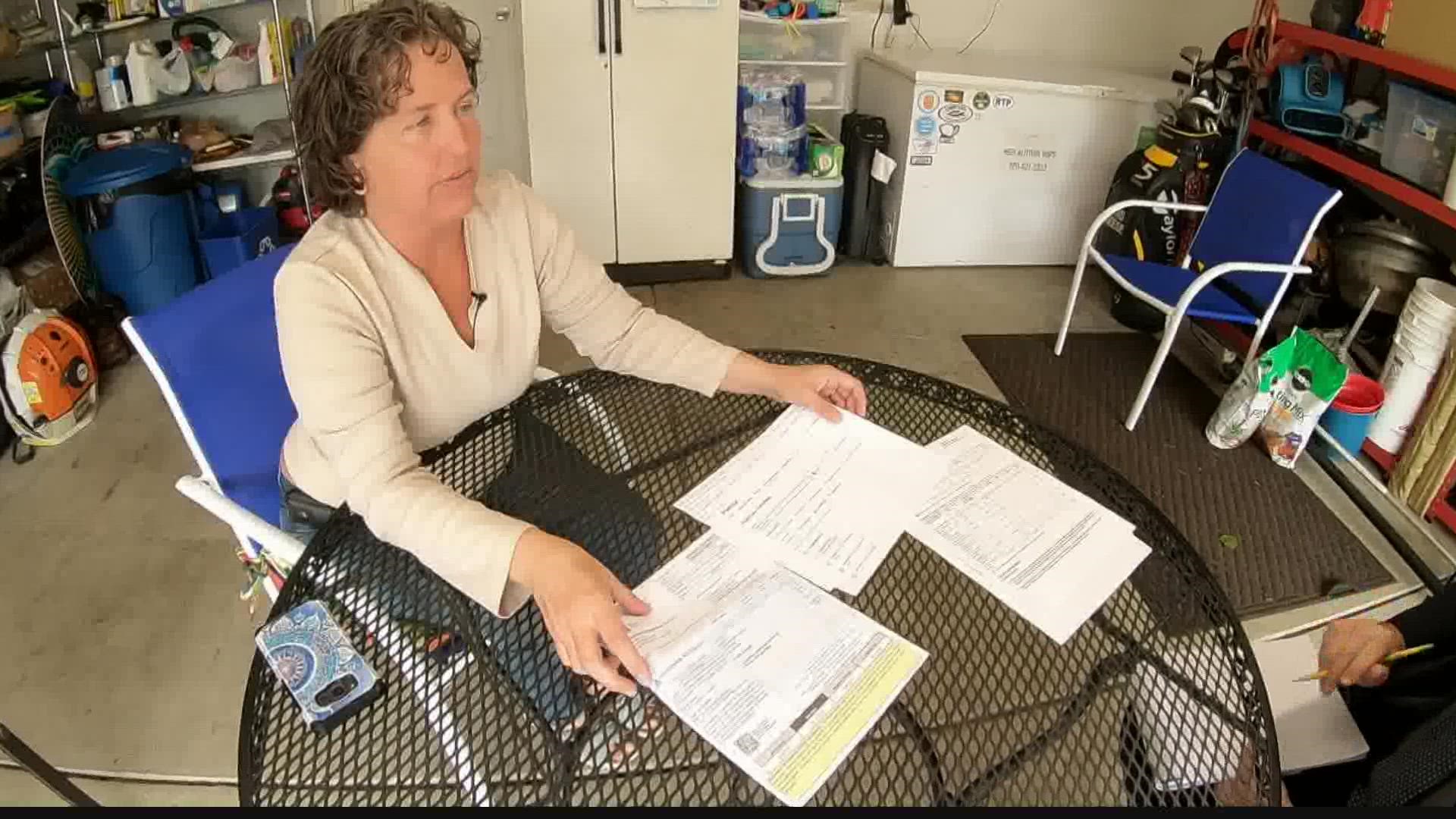INDIANAPOLIS — 13 Investigates discovered many Hoosiers were still receiving surprise medical bills, even after a 2020 Indiana state law was created to help address the issue.
Despite the new laws, medical billing can still be hard to understand and not very transparent. Knowing the resources that are available and the right questions to ask can go a long way in helping to reduce your risk of getting a surprise bill.
Here are three tips that could end up saving you big money.
Ask the right questions
These three questions will help you determine if you are at risk for a surprise medical bill:
- Is my doctor or medical specialist in-network? (Yes = lower health care costs)
- Will I receive services from anyone else during my procedure who is not in-network? (Yes = higher health care costs)
- Is the facility in-network? (Yes = lower health care costs)
Whenever possible, get the answers to these questions in writing.
It's important to use the term “in-network” when asking these questions. While a doctor or facility might “accept” your insurance, that does not necessarily mean they accept your specific plan.
These questions also need to be asked every time you receive health care. Many plan providers change from one year to the next, and a doctor who might be in-network this year could be out-of-network in a couple of months.
Determined to avoid a surprise medical bill, Caitlin Donovan, a health care policy expert with the National Patient Advocate Foundation, got creative when she had an in-patient hospital visit for the birth of her child.
“We thought really carefully about what we could do to try and preempt some of those extra billing charges. So we made a sign for our door that said, 'If you are not on our insurance, please do not come in,’” Donovan said.
Starting in January 2022, medical providers and facilities will be required to notify you of any out-of-network practitioners who will be providing your health care and obtain your permission before they can seek reimbursement for higher out-of-network rates.
Request a good faith estimate
In many situations, new state and federal laws will require health care providers and facilities to provide a good faith estimate to patients – as long as you request one. In some situations, those good faith estimates are required whether requested or not.
If you are legally entitled to an estimate, ask for one, and do as soon as possible. Make sure to request a good faith estimate at least five business days prior to your procedure (providers do not have to provide an estimate if given less notice) to catch potential surprises before you receive your medical care. Realizing that you may receive services from an out-of-network provider before your procedure gives you an opportunity to reschedule the medical care at a different facility that might not use out-of-network providers, costing you much less.
Use online price tools
Indiana hospitals are now legally required to provide an online list of prices for their most common procedures. Checking those price estimator tools allows patients to shop around for prices, which is especially valuable for those who are uninsured or planning to pay for health care services out of pocket.
13News used several hospitals’ price estimator tools to check the costs of common services on October 27. The out-of-pocket patient costs listed for self-pay services were dramatically different based upon the hospital selected:
30-minute new patient office visit (CPT 99203)
- Ascension St. Vincent Fishers $785
- Health Network $129
- IU Health North Hospital $59
Arm X-ray with 2 views (CPT 73060)
- Ascension St. Vincent Carmel $326
- Community Health Network $182
- IU Health University Hospital $128
Colonoscopy with biopsy (CPT 45380)
- Ascension St. Vincent Carmel $7,375
- Community Health Network $4,329
- IU Health University Hospital $3,615
Comparing costs with the hospitals’ price estimators showed significant out-of-pocket self-pay price differences even at hospitals that are part of the same health system:
Routine childbirth without complications (CPT 807)
- IU Health University Hospital $7,550
- IU Health West Hospital $4,966
- Ascension St. Vincent 86th St $20,080
- Ascension St. Vincent Anderson $12,637
The non-binding estimates often include a series of disclaimers, including warnings that estimates may not include out-of-network provider charges and various support services required during procedures. Insured patients may find it more difficult to get an accurate estimate without calling a health care facility directly to provide more detailed insurance information. Nonetheless, the price estimator tools are a positive step towards medical billing transparency.
You can usually find price estimates online by typing the name of a specific hospital network and the term “price estimator” into a search engine. (For example, Google “IU Health price estimator.”)
The Indiana Hospital Association also offers its own search tool that allows Hoosiers to find hospital-specific price information for common services, out-of-pocket costs and standard charges for items and services.
Print or screenshot this questionnaire as a guide when it's time to book an appointment or procedure.

